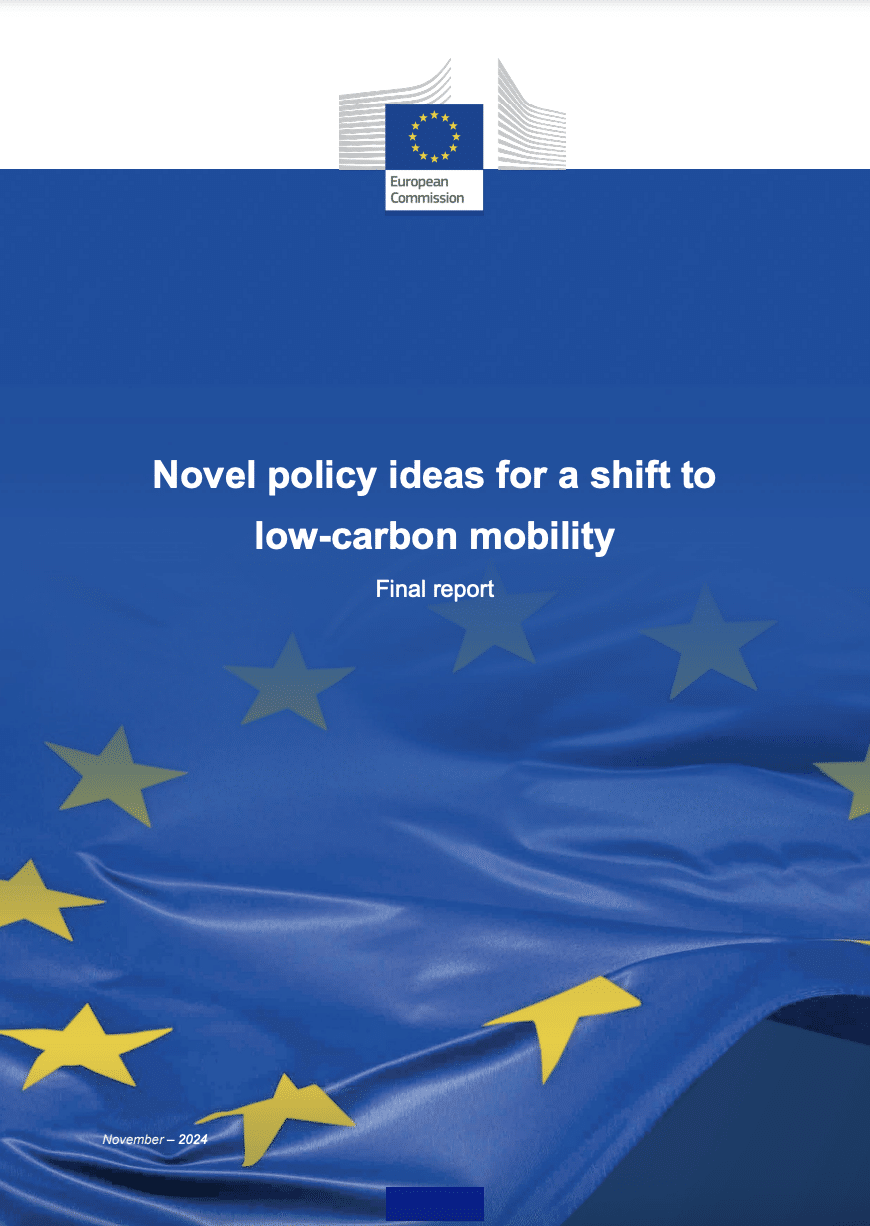Novel policy ideas for a shift to low-carbon mobility
Publication date: 19 Dezember 2024 | Report language: EN
This report, commissioned by the European Commission (DG CLIMA), develops and analyses novel policy options aimed at a shift to low-carbon mobility helping to decarbonise the transport sector in line with the recommended EU 2040 climate target, which seeks a 90% reduction in net greenhouse gas (GHG) emissions compared to 1990 levels. The transport sector is specifically addressed to achieve a near 80% reduction in emissions by 2040 relative to 2015.
The recent Political Guidelines for the next European Commission have underscored the importance of a shift to more sustainable options to achieve the EU’s climate objectives. Critical areas for action in this report focus on intermodal, multimodal, and combined transport solutions, as well as modal shift towards rail, coaches, and active mobility. It builds on a high-level analysis of the current policy framework related to multimodal/intermodal mobility.
Utilising the Shift dimension of the Avoid-Shift-Improve (ASI) framework, the study explores additional policies that support a transition from high-emission transport modes to more climate and environmentally friendly alternatives. Long-distance passenger mobility is projected to offer the largest potential for emissions reductions in 2040. A scenario analysis of the modelling underlying the European Commission’s recommended 2040 climate target highlights the importance of shifting towards low-carbon alternatives for achieving further emission reductions.
Three key policy option packages are proposed in this report for passenger transport: long-distance coaches, rural mobility, and active mobility. Building on the analyses of the 2040 transport emission scenarios and the identified solutions, these packages have been selected based on their relevance to emission reduction, their potential for introducing novel EU policies, their significant co-benefits, and prioritisation through a ranking framework. The three policy packages comprise: – Long-distance coaches: This aims at enhancing the attractiveness and integration of coach terminals for inter-urban and cross-border mobility. – Rural mobility: Options that establish minimum standards and promote low-carbon mobility services in rural areas. – Active mobility: Options to promote sustainable and safe active transportation through the adoption of targets, indicators, and effective safety regulations.




